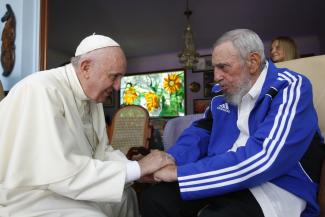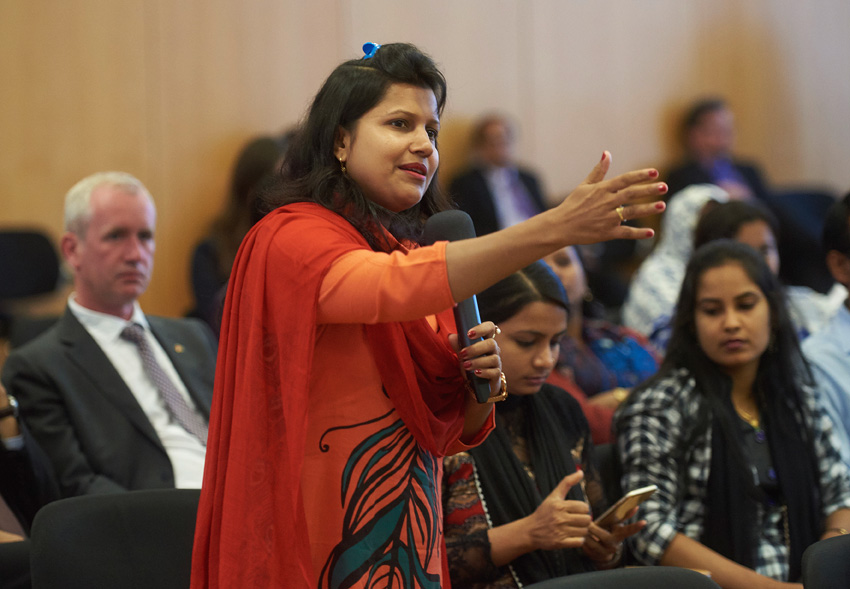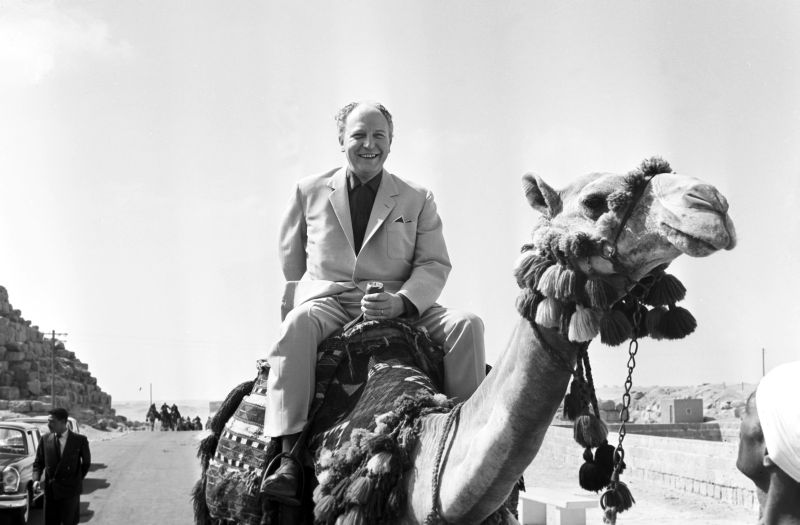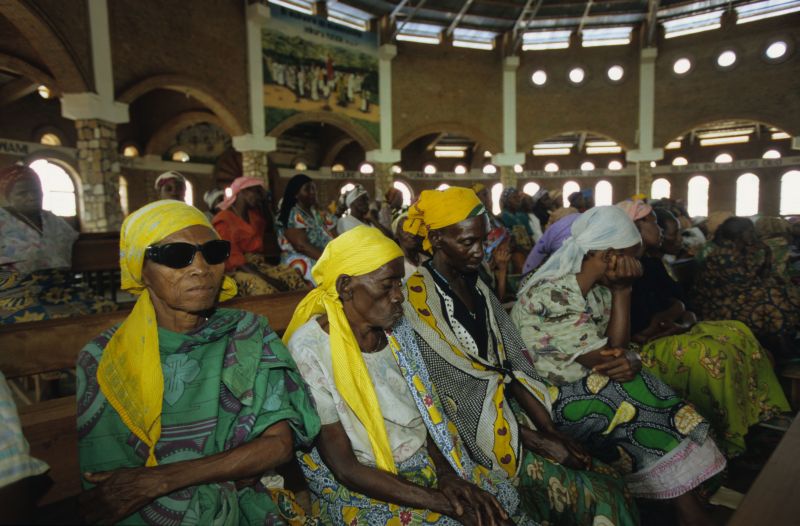Faith and development
Religion’s creative potential

In 40 of the countries that are partners of German development policy, four out of five people say their faith religion is “very important” to them. In Nigeria, 90 % of the people go to church or mosque every week. In comparison, only about six percent of Germans attend church services regularly.
In developing countries, religion and religious communities have a bearing on the development process, albeit sometimes in ambivalent ways. In the name of religion, people have been – and still are – tyrannised, persecuted and killed, and development progress that had been made is undone again. Animosity, attacks, a lack of state protection and discrimination by government agencies affect members of all religions around the globe.
On the other hand, the World Bank estimates that faith-based agencies provide almost half of all health and education services in sub-Saharan Africa. Churches and their partners are the only ones to ease the suffering of people in crisis situations and unstable countries, where development cooperation between state agencies is not, no longer or not yet possible.
Development agencies must find ways to address these challenges. Without a doubt, the relevance and urgency of questions surrounding the role of religious communities in development has grown considerably. Among other things, these questions concern faith-based organisations’ relationship with the state and their potential influence on attitudes and decision-making. It is amazing that these questions have not played a major role thus far.
Religion defines many people’s values, so enormous opportunities arise. Around the world, many people’s world views, life styles and social attitudes are shaped by their faith. Shortly after taking office, Gerd Müller, Germany’s federal minister for economic cooperation and development, said: “Religion can build bridges and motivate people to help others and protect the environment. We have neglected this potential for far too long.”
We must find ways to better involve moderate religious forces in developmental efforts and cooperate with them to promote peaceful coexistence. To that end, Germany’s Federal Ministry for Economic Cooperation and Development (BMZ) has set up an internal task force on values, religion and development. Moreover it regularly invites prominent faith leaders to share ideas in an informal setting in a new event series called Religion Matters. An entire chapter of the BMZ’s Charter for the Future is devoted to the topic. This charter spells out how we want to live in the future and is based on a broad-based dialogue with civil society.
The BMZ is also advancing this topic at the international level. In July, the BMZ, together with the World Bank, the UN and the largest bilateral donors, organised a conference in Washington on the role of religion in international cooperation. A follow-up conference will continue to facilitate networking between development agencies and faith-based organisations in Berlin on 17 and 18 February 2016. Better coordination is the only way to make religious communities part of the new global partnership the UN envisions for the post-2015 agenda.
Independence from the state
Cooperation of church and state is nothing new of course. The BMZ has worked with the two main Christian churches for over 50 years. Churches occupy a unique position among the agencies the BMZ provides with funds. The advantage of church-run projects is that churches work independently of the state. Moreover, they are committed to cooperating with anyone who applies for their assistance. The BMZ values their experience of many decades, their strong networks and links to partners, and their proximity to the poorest of the poor.
A recent example was that, following the Ebola outbreak in Sierra Leone, churches were able to act faster than state agencies. Their long-standing contacts helped, and they could rely on the initiative of local partners.
The Ebola epidemic also provided a good example of how essential religion is for overcoming crises and breaking with destructive traditions. The ritual of washing dead bodies was one reason why the virus spread so quickly. According to west African tradition, the dead are washed before burial by their families, and they are sometimes even embraced as a way of saying good-bye. The greatest infection risks are linked to these practices. Only after priests and imams pointed out that the tradition is dangerous in an Ebola context, but not morally required, did people begin to heed international advice to abandon it.
When a faith community starts something, it often enjoys support from large sections of society. In the long run, its initiatives can result in firmly established institutions with an impact on economic and political life.
This is not only true of developing countries. It happens in Germany too, and fair trade is an example. The idea grew from an initiative started by Catholic and Protestant youth associations which were supported by Misereor and Brot für die Welt, two faith-based development agencies. In 1970, “hunger marches” were organised in 70 German cities, and this movement gave rise to civil-society activism to improve trade with the developing countries. Ultimately, it led to the opening of fair-trade shops.
Today, fair trade is firmly established in Germany. This retail segment is growing at a remarkable rate. In 2014, fair-trade sales amounted to over € 1 billion – 10 times more than in 2004. What started as a small faith-based initiative has become a successful marketing system. It is an alternative model to the standard economic practices of industrialised countries. In countries of the global south, the fair-trade system guarantees fair wages and decent labour conditions, thus helping people to take their fates into their own hands.
“A different world is possible – and it exists in this one.” This quote by the French poet Paul Éluard describes what development policy can achieve. Successful development builds on existing structures, taking into account culture and religion. Our goal is to enable people around the world to live self-determined lives in freedom, peace and dignity – regardless of their nationality, gender, ethnicity or religion.
Bernhard Felmberg heads the directorate for civil society, churches and the private sector in development cooperation within Germany’s Federal Ministry for Economic Cooperation and Development (BMZ).
bernhard.felmberg@bmz.bund.de
Link:
Charter for the Future (in German):
https://www.zukunftscharta.de









